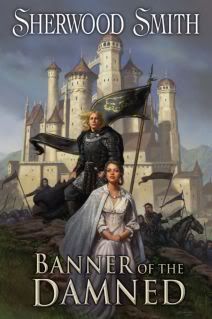USC Annenberg Announces Recipients of 2012 Knight Luce Fellowship for Reporting on Global Religion
Released: 3/1/2012 2:00 PM EST
Source: University of Southern California
Newswise — March 1, 2012 – The USC Annenberg School for Communication and Journalism announced today the recipients of the 2012 Knight Luce Fellowship for Reporting on Global Religion. Seven American journalists were chosen to receive stipends from $5,000 to $20,000 to report on religion around the world.
“The number and quality of the proposals we received demonstrate the variety of important stories that can be told about global religion,” said Diane Winston, Knight Chair in Media and Religion at USC Annenberg. “We identified projects that illustrate the impact of religion worldwide, from the political to the personal, and can be posted, printed, broadcast and published across media platforms.”
Stipends will support the following projects:
• Ned Sublette will travel to Angola and Haiti to report on the traditional religions of Kongo/Ngola as reflected in music. Sublette has made over a hundred radio documentaries about African-diaspora music for PRI’s Afropop Worldwide and Afropop Worldwide Hip Deep. He is the author of three books, including The World That Made New Orleans and Cuba and Its Music, and his reporting has appeared in DownBeat, American Legacy, Bomb, The Nation, and Smithsonian
• Damaso Reyes will investigate the growth of European Pentecostalism led by immigrants from former European colonies. Reporting from Spain, England and Ukraine, Reyes will examine how Charismatic faiths are growing while traditional European Christian religious observance continues to decline. Reyes is a photographer and writer whose work has appeared in The Wall Street Journal, Der Spiegel, and The Christian Science Monitor.
• Outlawed by Mao Tse-tung during the Cultural Revolution, religious expression is now legally tolerated in China. Peter Manseau will report on the variety of spiritual traditions flourishing there, including their opportunities and challenges. A visiting fellow at Washington College's C.V. Starr Center for the Study of the American Experience and writer, Manseau’s work has appeared in The Washington Post, The Wall Street Journal and on NPR’s All Things Considered.
• Hillary Brenhouse will report on the return of the Hindu Pandits to their ancestral homeland in the Kashmir Valley. Scattered to urban centers and refugee camps in the wake of a Muslim insurgency and anti-Hindu violence in 1990, many Pandits are now returning to rebuild their shrines and resurrect their faith. Brenhouse will investigate the revival’s social and political implications in India. Her work has appeared in TIME, Slate and The International Herald Tribune.
• Sarah Stillman will profile Father Alejandro Solalinde Guerra, a Catholic priest based in Ixtepec, Mexico, and the shelter he has established to safeguard Central American migrants who are routinely assaulted, kidnapped, and robbed by drug cartels while en route to the United States. Stillman’s award-winning international and domestic reporting has appeared in The New Yorker, The Washington Post and The Nation.
• Daniel Lovering will report on American missionaries who lead teams of relief workers into the war zones of Myanmar, also known as Burma, to provide medical supplies to civilians trapped by local fighting. Among the volunteers who support this new breed of missionaries are dentists, Iraq war veterans, and students from US Christian colleges. Lovering is a contributor to Reuters and The New York Times.
• Caitlan Carroll will explore Georgians’ attempts to revive sacred music that was muted during Soviet rule. Since gaining their independence, Georgian scholars, musicians, and patriotic young people have sought to revive the sacred songs of Orthodox Christianity. Carroll, along with photographer Andreas Reeg, will visit Georgia to explore the role of religious music in the area’s spiritual life. Based in Germany, Carroll’s work has been heard on American Public Media’s Marketplace, Public Radio International and Deutsche Welle.
Within the nine-month period of their fellowship this year, fellows will report and develop stories for delivery on multiple platforms. At the completion of their projects, one or two fellows will be in residence at USC to present their work, hold master classes for journalism students and give public lectures.
The Henry Luce Foundation was established in 1936 by Henry R. Luce, the co-founder and editor-in-chief of TIME Inc., to honor his parents who were missionary educators in China. The Foundation builds upon the vision and values of four generations of the Luce family: broadening knowledge and encouraging the highest standards of service and leadership. The Henry Luce Foundation seeks to bring important ideas to the center of American life, strengthen international understanding, and foster innovation and leadership in academic, policy, religious and art communities. The Luce Foundation pursues its mission today through a variety of grant-making programs; among these is the Henry R. Luce Initiative on Religion and International Affairs.
The Knight Chair in Media and Religion, established in 2002 by the John S. and James L. Knight Foundation, participates in a wide range of activities, including the organization of conferences for working journalists and the sponsorship of events for the local community. Dr. Winston addresses a host of issues surrounding religion and media through her writing and public speaking, as well as her development of coursework and symposiums. Through these outreach activities, USC Annenberg has begun to emerge as a hub for re-visioning how the press—and society itself—thinks about and reports on religion.
About the USC Annenberg School for Communication and Journalism
Located in Los Angeles at the University of Southern California, the Annenberg School for Communication and Journalism (annenberg.usc.edu) is a national leader in education and scholarship in the fields of communication, journalism, public diplomacy and public relations. With an enrollment of more than 2,200 students, USC Annenberg offers doctoral, master's and bachelor's degree programs, as well as continuing development programs for working professionals, across a broad scope of academic inquiry. The school’s comprehensive curriculum emphasizes the core skills of leadership, innovation, service and entrepreneurship and draws upon the resources of a networked university located in the media capital of the world.

